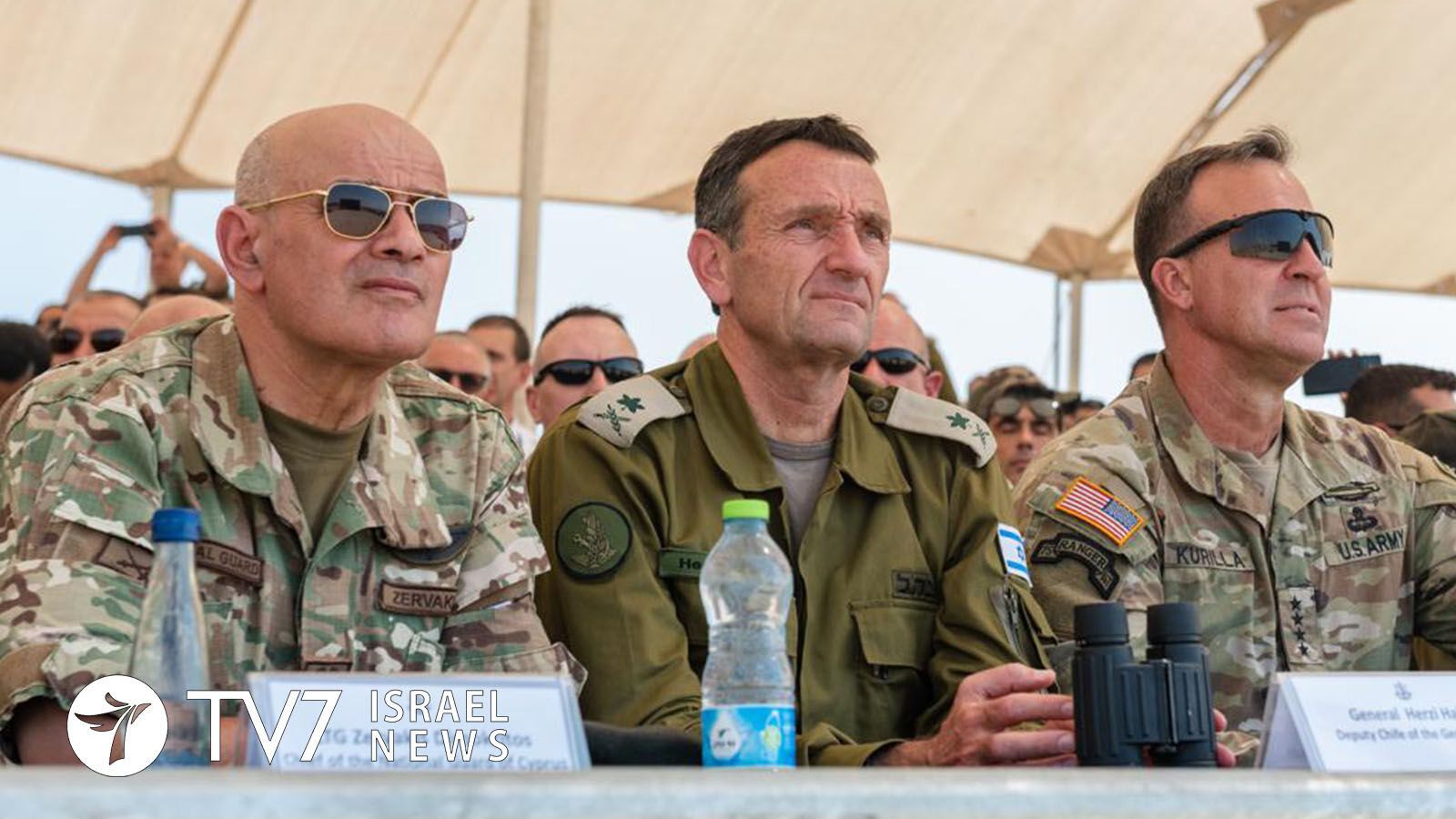The talks come amid rising tensions vis-à-vis the Islamic Republic of Iran.
By Jonathan Hessen and Erin Viner
Just three months after his last visit, United States Central Command (CENTCOM) Commander General Michael Kurilla held meetings with IDF Chief of Staff Lieutenant General Herzi Halevi.
Throughout the day, Gen. Kurilla held consecutive meetings at the IDF Headquarters in Tel Aviv, during which extensive discussions were held on the latest developments throughout the greater Middle East – with chief focus on the aggressive behavior by the Islamic Republic of Iran and its proxies.
Israeli Minister of Defense Yoav Gallant met this evening with Gen. Kurilla at the Israeli Ministry of Defense (IMoD) headquarters in Tel Aviv.
“The parties discussed developing regional challenges, with a focus on Iran’s malign activities in the Middle East region. This includes Iranian aggression in the maritime arena and the delivery of weapons to terror organizations and proxies in Syria, Lebanon, Iraq, Yemen, and the wider region,” said an IMoD statement, adding that “during the discussion, Minister Gallant expressed the concerns of the State of Israel in regards to Iran’s progress in its nuclear program and aims to achieve nuclear military capabilities.”
The two military leaders also “expressed their shared commitment to deepen the unique cooperation and intelligence-sharing between their respective militaries and defense establishments. In addition, they stressed the importance of widening military cooperation with regional partners under CENTCOM leadership,” said the statement.
Israel was ‘repositioned’ in 2021 to CENTCOM (from EUCOM [European Command], which now concentrates on Russia and its threats against Europe and NATO).
Minister Gallant concluded by expressing his deep appreciation for the commitment of the United States to the security of the State of Israel, and for General Kurilla’s personal contribution to the strong ties between the countries.
The meeting was attended by the IDF Chief of the General Staff, Head of the IDF’s Strategic Directorate, Israel’s Defense Attaché to the United States, and Director of the Policy and POL-MIL Bureau in the Ministry of Defense.
Since assuming his post last April, the 4-star general has visited Israel at least six times. Most notably, he presided over the Israeli-US Juniper Oak military exercise in January, that included unprecedented levels of cooperation CENTCOM in a united show of force against regional threats, chief of which is Iran.
A major report was published by the Israeli daily “Yisrael Hayom” during the CENTCOM Chief’s visit, expressing alarm over the significant reduction of US arms stockpiled in Israel after large shipments of rockets, mortars and missiles were transferred to Ukraine for defense against invading Russian forces.
There has been a decades-old understanding between Washington and Jerusalem that the stockpiles could be utilized by the IDF in the event of a wide-scale conflagration, similar in magnitude to the 1973 Yom Kippur War. The diminished supply of US munitions comes at a time of seemingly mounting prospects of such a multi-front war against Iran and its regional proxies.
Senior IDF officials have voiced concern to TV7 over the reduction of the American stockpiles in Israel, as well as a growing shortage in the West altogether – which is the core reason behind Washington’s decision to divert munitions from Israel and elsewhere toward Ukraine.
In conversations TV7 held with three separate senior military sources from the United States, Europe and Israel, all of the sources highlighted a Western struggle to ramp up munition production, particularly of artillery shells, to meet Ukrainian use of around 5,000 rounds per each day.
Even though the United States has managed to increase production to roughly 50,000 artillery shells per month, neither it nor its European allies have yet been able to fully supply quantities necessary to meet Kyiv’s battlefield needs.
The quandary has prompted questions over whether Israel’s lack of its own robust infrastructure can sufficiently contend with potential military challenges in the future.
